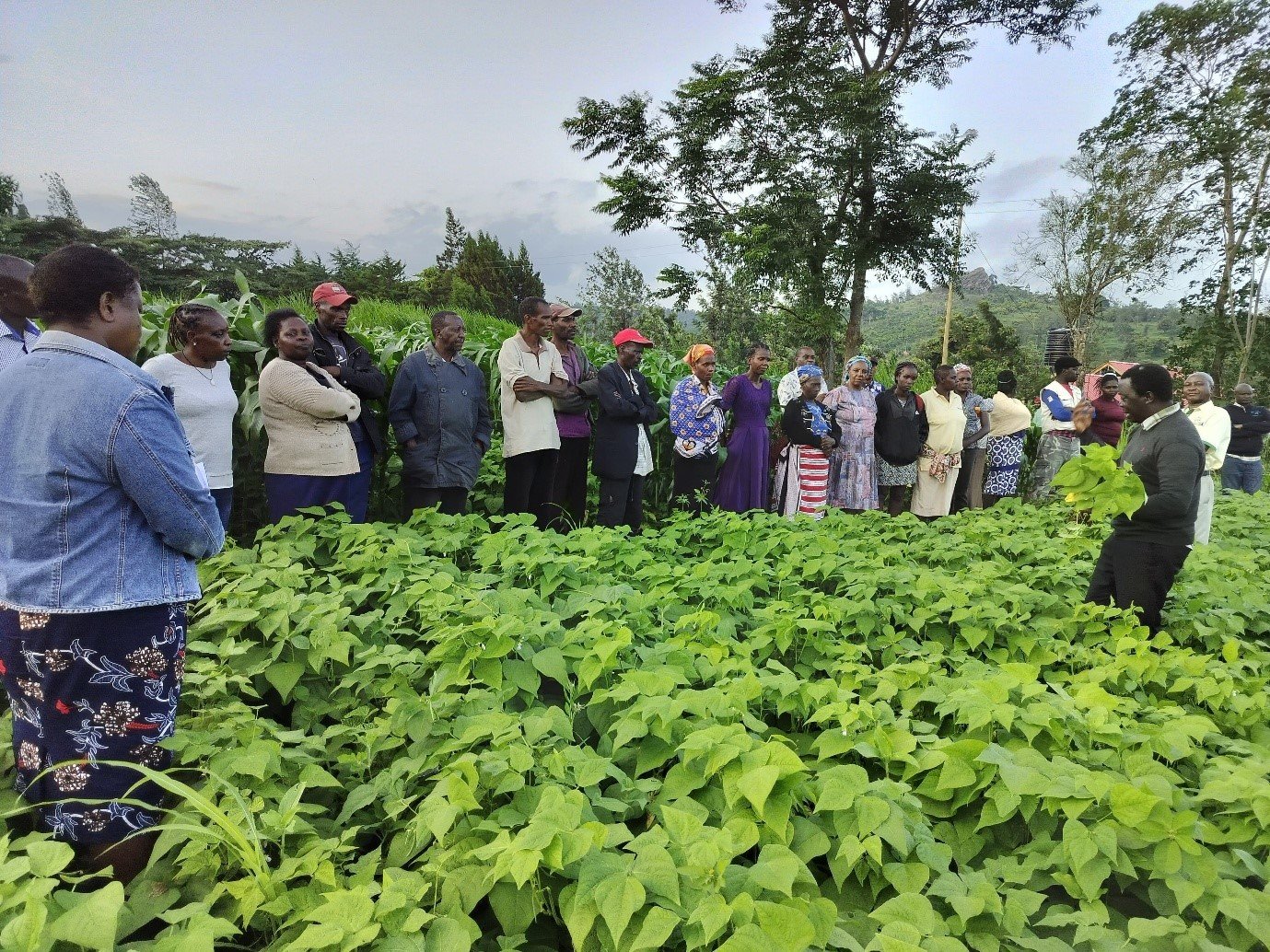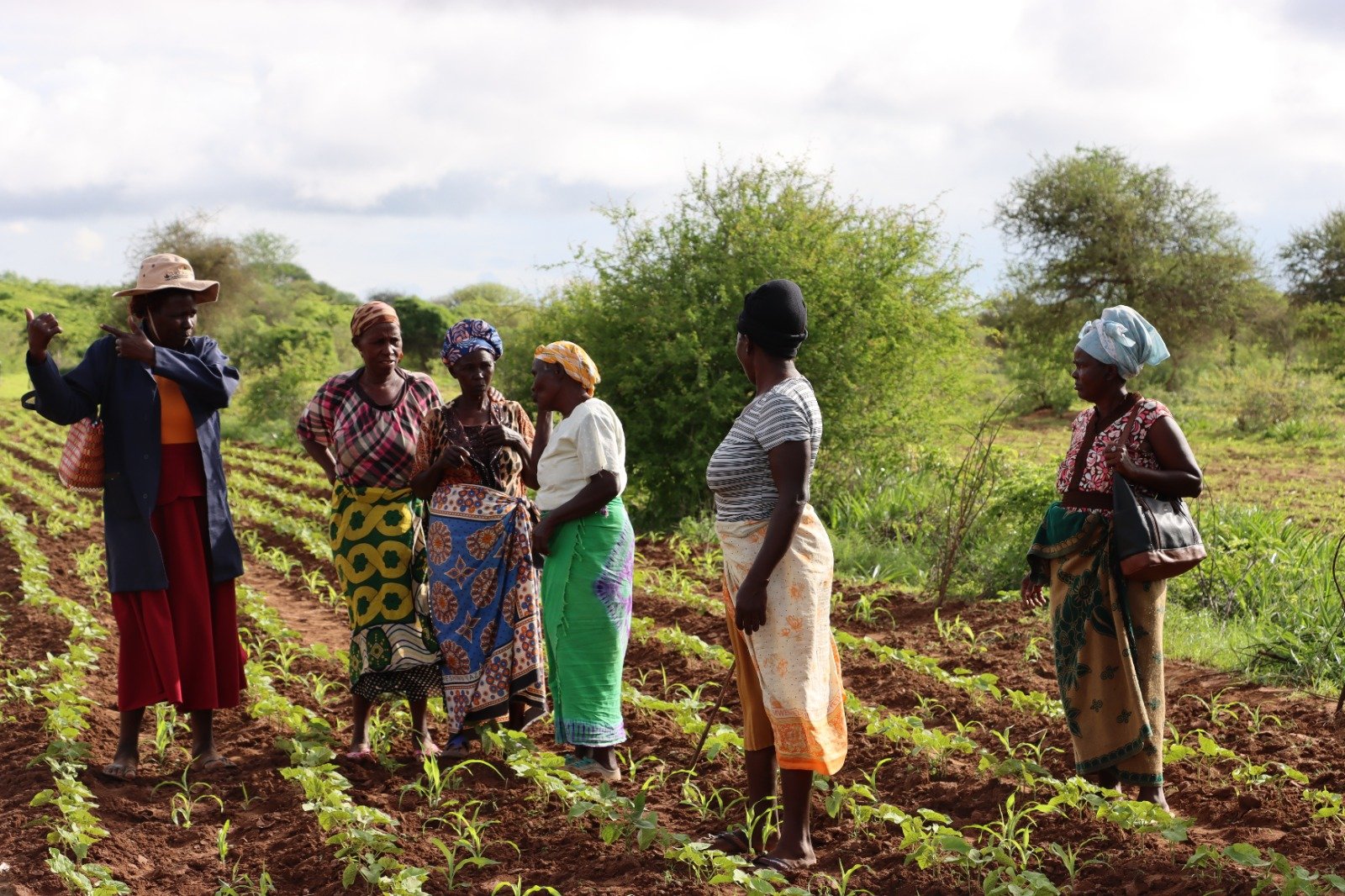
 Science communicator and a gender specialist Anastacia Wanjiru/HANDOUT
Science communicator and a gender specialist Anastacia Wanjiru/HANDOUT
A quiet transformation is underway in the lush agricultural fields of Njoro in Kenya.
Years of relying on nutrient-poor staples like maize and potatoes caused
women farmers like Grace Wanjiku micronutrient deficiencies and anemia casting
long shadows over their lives. But Grace and many other women have now taken up
a small but mighty solution: the Nyota bean.
The ongoing health struggles, coupled with the financial instability of subsistence farming, had left many women vulnerable and unable to break free from cycles of poverty. Grace, a mother of three, remembers the difficulties all too well.
“Before, I was always tired and could barely finish my farm work. When my youngest got sick from poor nutrition, I felt helpless. I didn’t know how to give my children better meals with what little I had,” she shared.
The qualities of the Nyota bean sounded too good to be true to Grace: “When the extension officer told me about this bean, I didn’t believe it at first. A bean that’s good for your blood and doesn’t cause gas? But I decided to give it a try and it has honestly changed everything.”
 Boaz from the Alliance of Bioversity
and CIAT engages with farmers, sharing best practices for cultivating the
high-yielding and nutritious Nyota bean variety/HANDOUT
Boaz from the Alliance of Bioversity
and CIAT engages with farmers, sharing best practices for cultivating the
high-yielding and nutritious Nyota bean variety/HANDOUTA 2022 report by the Kenya National Bureau of Statistics highlights significant nutritional challenges, with 18 per cent of children under the age of 5 experiencing stunted growth and 42 per cent of pregnant women suffering from anemia. Beans serve as a vital source of nutrients, offering essential proteins, iron, and fiber that help combat these deficiencies.
According to the Kenya National Bureau of Statistics' 2024 Economic Survey, the agriculture sector, which includes bean cultivation, experienced a 6.5 per cent growth in 2023, recovering from a 1.5 per cent contraction in 2022.
This positive trend is attributed to favorable weather conditions throughout the year. The increasing focus on beans as a staple crop underscores their role in improving food security and nutrition.
 Women farmers in Kenya/HANDOUT
Women farmers in Kenya/HANDOUTThe Nyota bean variety (Nyota meaning “star” in Swahili) has gained rapid popularity among small-scale and subsistence farmers.
This red-mottled bean
stands out for its fast maturity and adaptability to varying climates, making
it a valuable crop for farmers in diverse regions as it meets the micronutrient
levels of Zinc and Iron crucial for immunity and blood supply.
Developed by the Kenya Agricultural and Livestock Research Organization (KALRO), with support from the Alliance of Bioversity International and CIAT, its ability to thrive in both hot, dry regions and cold, dry highlands offers farmers remarkable versatility.
Mr David Karanja, the National Coordinator for Grain Legumes at KALRO, led the charge to introduce the beans to Njoro.
“These women were facing nutritional and economic challenges head-on. The Nyota bean was designed to meet their needs, both in the kitchen and the marketplace,” he said during a community meeting. “It’s not just a bean; it’s a tool for empowerment.”
The
Alliance of Bioversity International and CIAT is also working in close
partnership with KALRO to support the distribution and adoption of the Nyota
bean, helping farmers like Grace to overcome their challenges.
As Grace began cultivating the Nyota bean, she quickly saw its impact on her family.
“Now, I can prepare meals that fill my children up and keep them healthy. My youngest hasn’t been sick in months, and I feel stronger myself,” she said with pride.
.“It cooks so fast; I don’t have to spend hours over the fire anymore.”
She’s not the only one noticing the change. Mary Njeri, a neighbor and fellow farmer, took up Nyota after seeing Grace’s success.
“Grace told me how much easier it was to grow and sell the Nyota bean. I decided to try, and now my family eats better, and I even saved enough money to buy a goat,” she said.
Mr. Karanja sees a bright future for the Nyota bean for farmers.
“This is just the beginning,” he said as he visited Grace’s farm. “We’re not just growing beans; we’re growing opportunities. With proper support, these women can transform their communities.”
The transformation is already evident. Grace’s cooperative is planning to expand, with younger farmers showing interest in joining the initiative. “When I see young people like my son wanting to farm Nyota, I know we’re onto something big,” she said, beaming.
Today, women farmers, once bound by the limitations of poor nutrition and low income, are thriving. With improved nutrition, health and financial stability, they are sending their children to school, investing in their farms, and inspiring others in their community.
“Farming Nyota is more than just planting seeds,” Mary Njeri reflected.
“It’s about planting hope for ourselves and for our children.”
The Nyota bean has indeed sparked a revolution, proving that with the right tools, training, and community spirit, even the smallest seed can lead to monumental change.
The writer is a science communicator and a gender specialist working at the Alliance of Bioversity and CIAT

